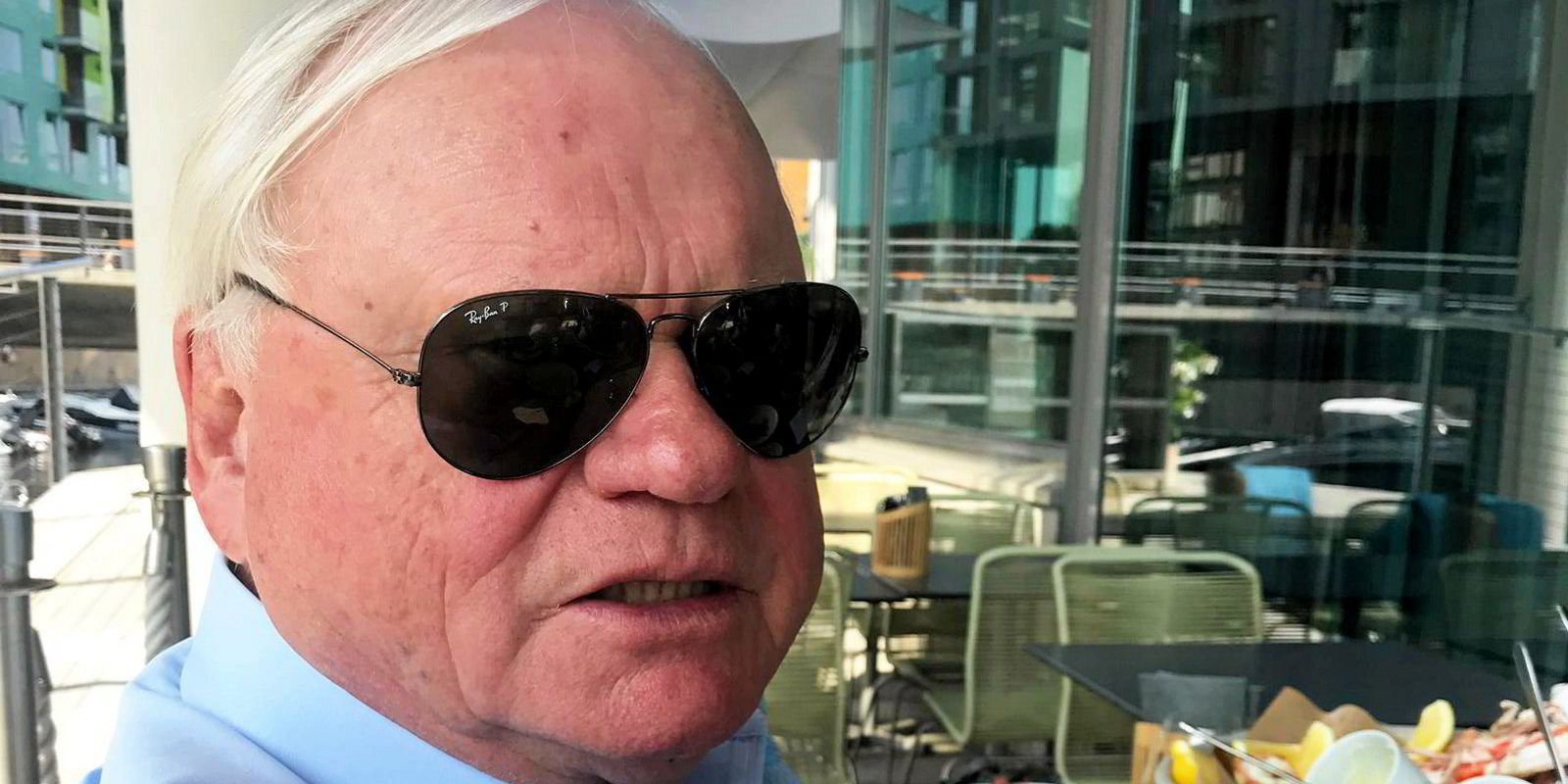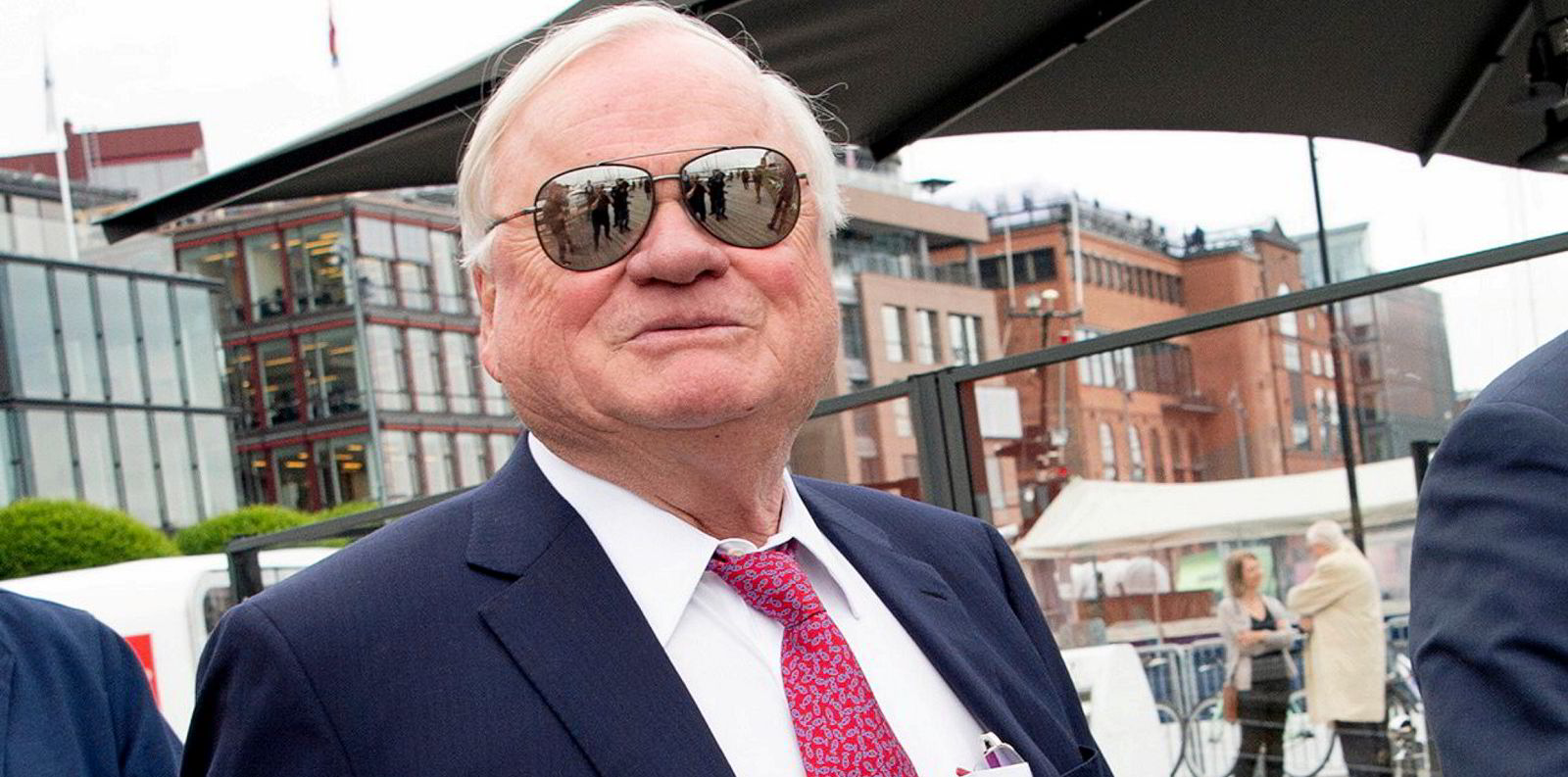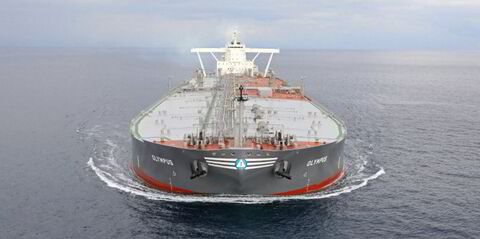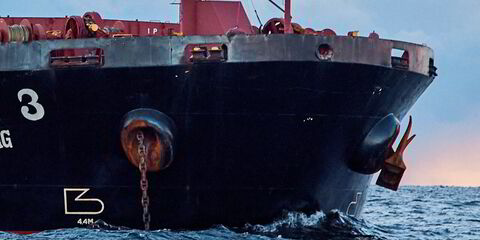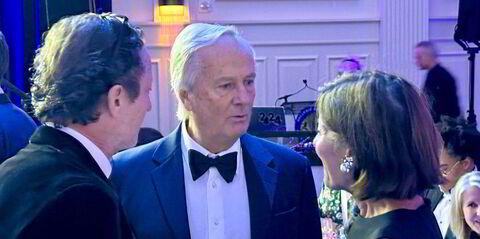John Fredriksen’s Frontline has ended its pursuit of Euronav.
The New York- and Oslo-listed tanker giant announced after the market close on Monday that it was backing off its contentious $4.2bn merger push with its Belgian rival.
“We regret that we could not complete the merger as envisaged in July 2022, as that would have created by far largest publicly listed tanker company,” Frontline chief executive Lars Barstad said in a statement.
“At the same time, both companies have independently very large fleets of crude oil and product tankers, and are already enjoying economies of scale as evidenced by our respective recent financial reports.
“Frontline will with its efficient operations continue to capture value as this cycle unfolds, and remain focused on maximising dividend capacity per share.”
Euronav has been approached for comment.
Frontline was offering 1.45 of its shares for each Euronav share in an effort to combine the two companies, a merger that was cheered by analysts but derided by Euronav’s founding family, the Saverys, who quickly built a considerable stake in the company through their firm Compagnie Maritime Belge (CMB).
The Belgian shipping dynasty believed Euronav was best set up to transform into a green energy company, rather than continuing to carry crude oil.
Their 25% stake was enough to effectively block a traditional merger, pushing the two companies into a situation that Euronav chief executive Hugo De Stoop described as “a little bit peculiar”: Frontline would act as the parent and Euronav as a subsidiary with one management team in charge.
The merger was set for completion by the end of 2022, but pushed back until March 2023 as the two sides worked to gain regulatory approvals.
It was speculated that Fredriksen, the Norwegian-born shipping magnate behind Frontline, was reconsidering the deal in early December, when he sold 2m Euronav shares, trimming his position to 17.8%.
Others suggested it was a shot across the bow to Euronav shareholders that he was willing to walk away from the deal if he could not get full control.
But a week later, the Saverys would reach the 25% magic number, which would prevent 75% shareholder approval for a merger in keeping with Belgian law.
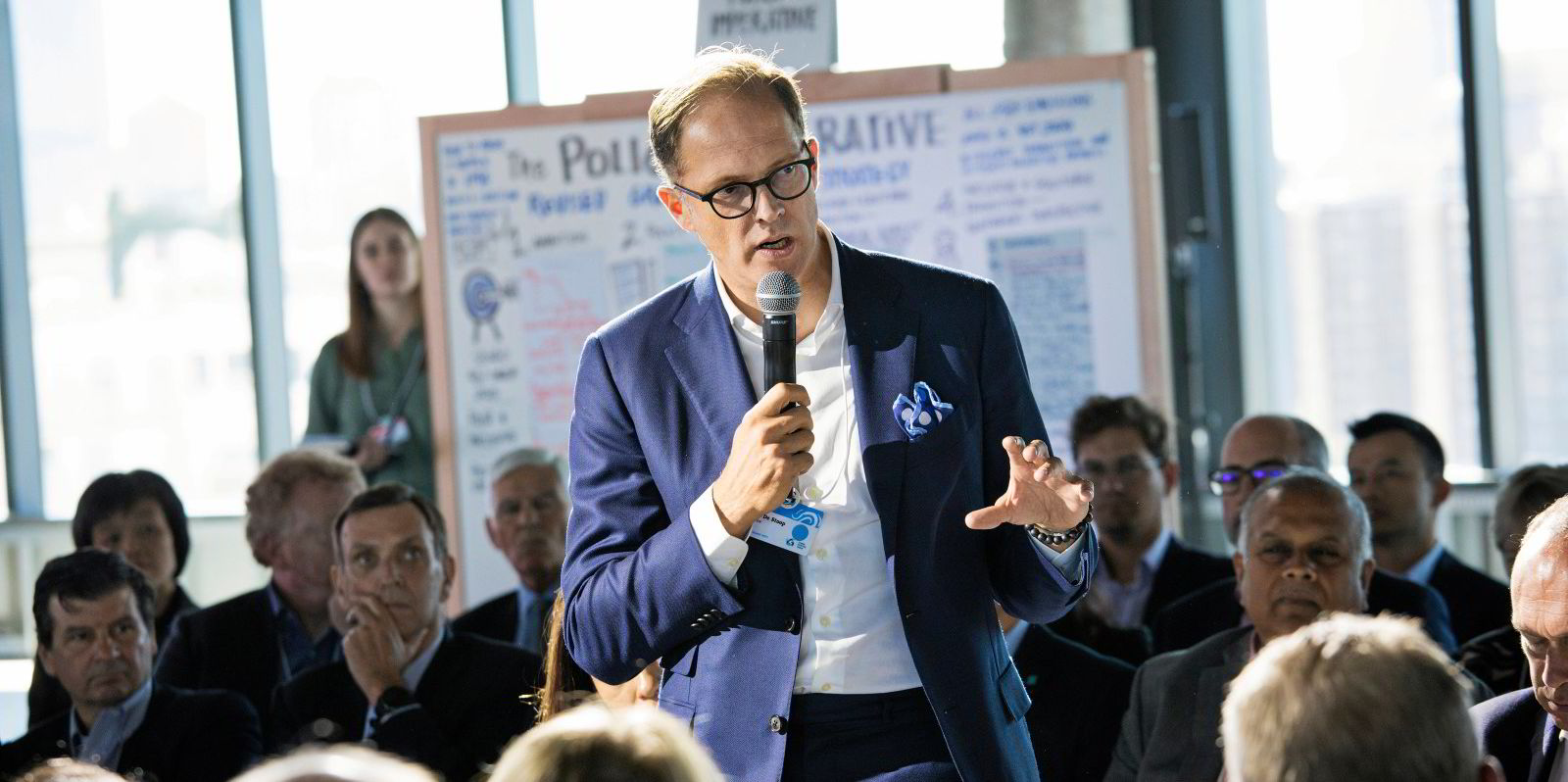
The family then requested Euronav terminate its agreement with Frontline and sit down and compromise on a future for the firm.
In response, Euronav said it had planned for the Saverys to build its stake in the company and that the combined company would become a “‘must-have’ stock in the crude tanker market”.
Shipping researcher J Mintzmyer had opposed the tie-up due to the opposition from the Saverys family.
On Monday night he tweeted: “Frontline dumps Euronav! Yasss!!!”
He had carried out an online poll showing 85% of his Twitter followers were also against the deal by the middle of December.
Mintzmyer said at the time Euronav was “an obvious avoid” due to the family’s efforts to block the deal and re-route capital.
And he asked: “Is it time for Frontline to dump Euronav merger plans, focus on their superior tanker fleet and let the Saverys implode the remaining Euronav capital via their ESG plans?”
In total, the two companies would have controlled more than 130 tankers, comprised of both crude and product tankers.
Following the announcement, Frontline rallied by 14.7% to $13 in after-market trading, while Euronav shares cratered by nearly $3, or 18.6%, to $12.97.
